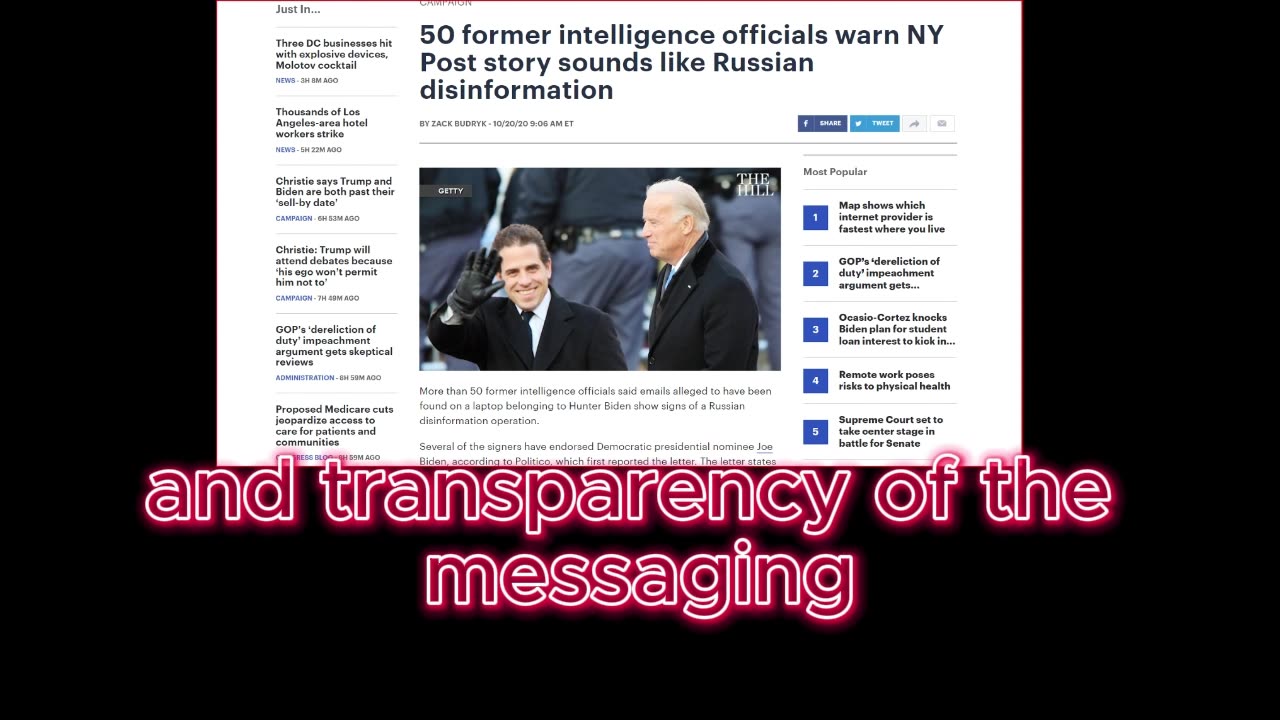Premium Only Content

Defeat Disinfo summarized in short form
Uncovering the Impact of Defeat Disinfo: Shaping the Election Narrative
In the ever-evolving landscape of political campaigns, the use of technology has become a crucial weapon in the battle for hearts and minds. Enter Defeat Disinfo, a Democratic-aligned political action committee (PAC) armed with artificial intelligence and network analysis to counter President Trump's messaging during the 2020 election. Let's explore what we have learned about their tactics and their potential impact on the democratic process.
Defeat Disinfo, advised by retired Army Gen. Stanley McChrystal, harnessed AI and network analysis to map and track discussions of the president's claims on social media. Their goal was to identify and amplify popular counter-narratives through a network of over 3.4 million influencers nationwide. In some cases, they even paid influencers with significant followings to oppose President Trump.
Recognizing the power of narratives in shaping public opinion, Defeat Disinfo sought to combat Trump's online influence, particularly regarding his handling of the coronavirus pandemic. Their initiative raised concerns within the Democratic Party, as they feared Trump's digital army could sustain him despite challenging circumstances.
The technology used by Defeat Disinfo was initially developed to counter extremism, incubated with funding from the Pentagon's research arm, DARPA. However, it's important to note that DARPA has stated it is not involved in Hougland's current initiative, distancing itself from any direct association with the PAC.
While Defeat Disinfo aimed to ensure the accuracy of information leading up to the election, questions arise regarding the impact on democratic principles. Paying influencers to convey specific messaging veers from traditional PAC approaches. Nonetheless, Defeat Disinfo claimed they would rely on real stories from real people rather than resorting to false narratives or employing bots and sock puppets.
The tactics employed by Defeat Disinfo highlight the growing significance of digital platforms in shaping public opinion. Democrats recognized the need to combat Trump's messaging, which often resonates strongly on social media. However, there is a concern about the long-term consequences of adopting similar tactics, as it can create a cycle of escalating digital warfare that may not be beneficial for our democracy.
As we reflect on this chapter of the election, it becomes clear that technology's role in shaping narratives and influencing voter sentiment cannot be underestimated. The battle for information and attention will continue to evolve, demanding vigilance and critical analysis from all sides. Understanding these dynamics is vital as we navigate the intersection of technology, politics, and democracy.
In conclusion, the story of Defeat Disinfo sheds light on the power and potential consequences of using advanced technology to sway public opinion during elections. The ethical and democratic implications of such strategies warrant ongoing discussion and scrutiny, ensuring that our electoral processes remain transparent, fair, and reflective of the will of the people.
-
 21:24
21:24
marcushouse
10 hours ago $0.06 earnedStarship Flight 10: Go or No? 🚀
14.3K11 -
 LIVE
LIVE
MrR4ger
15 hours agoSUNDAY FUNDAY w/ R4GER - VARIETY / DIABLO 4/ FOR HONOR / ETC?
74 watching -
 5:40
5:40
WhaddoYouMeme
3 days ago $0.19 earnedThey’re Calling This the End of Masculinity
18K17 -
 15:24
15:24
Tactical Advisor
19 hours agoBest 2011 of 2025 | Bul Armory Ultralight Pro
21.8K1 -
 27:31
27:31
True Crime | Unsolved Cases | Mysterious Stories
2 days ago $0.11 earnedThe Hong Kong Schoolgirl Mystery – 5 Mysterious Unsolved Cases (Part 8)
17.1K2 -
 7:19
7:19
China Uncensored
1 day agoChina is DONE in the South China Sea
14.4K32 -
 5:17:07
5:17:07
Joe Donuts Live
6 hours ago🟢 Loot Rats Unleashed: Arena Breakout Chaos! | Joe + Tony + Vlad
25.5K1 -
 30:37
30:37
Degenerate Plays
17 hours ago $0.01 earnedThis College Is Out Of Control - GTA Online : Part 9
8.92K -
 16:28
16:28
Mrgunsngear
3 days ago $0.50 earnedBeretta 92XI SAO Sabbia Review - A Few Surprises
10.5K6 -
 1:48
1:48
Memology 101
2 days ago $0.06 earnedThis aged like milk for Tish James...
5.59K7